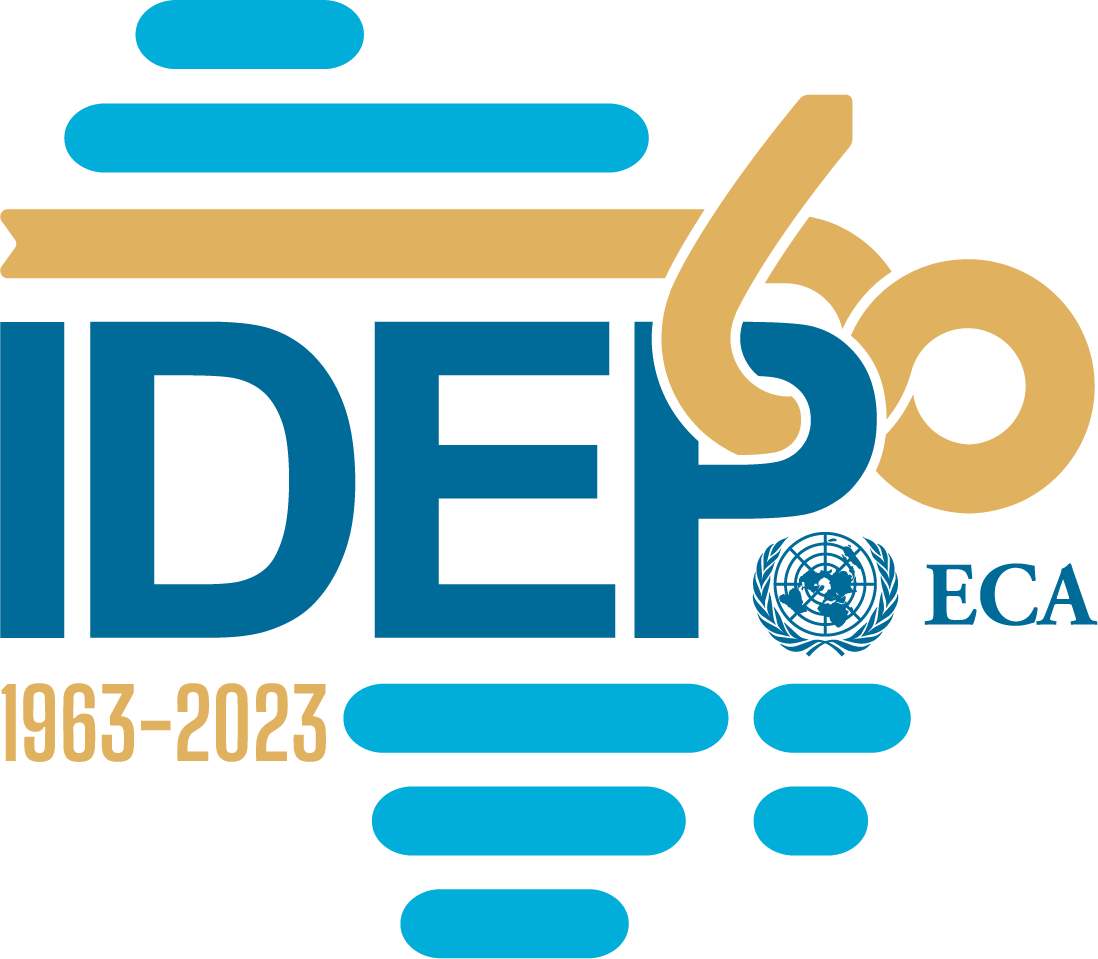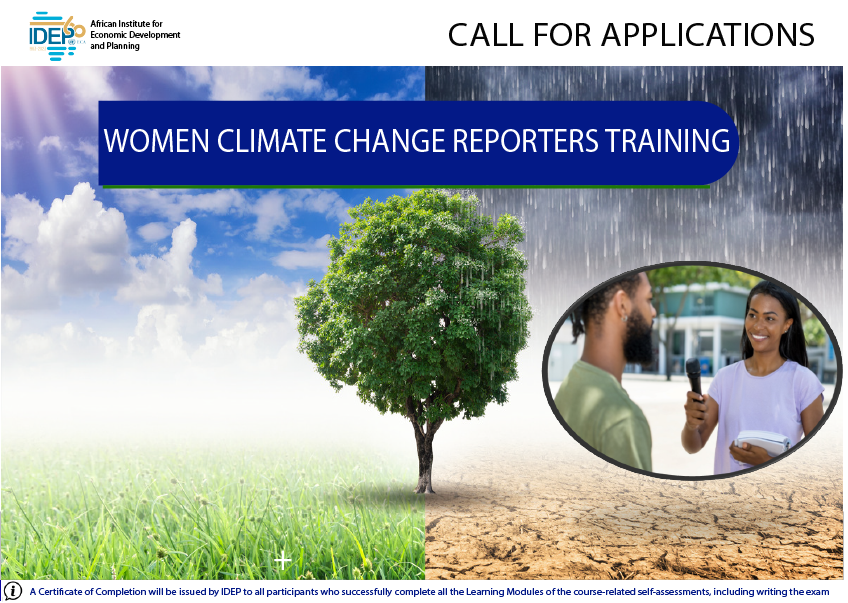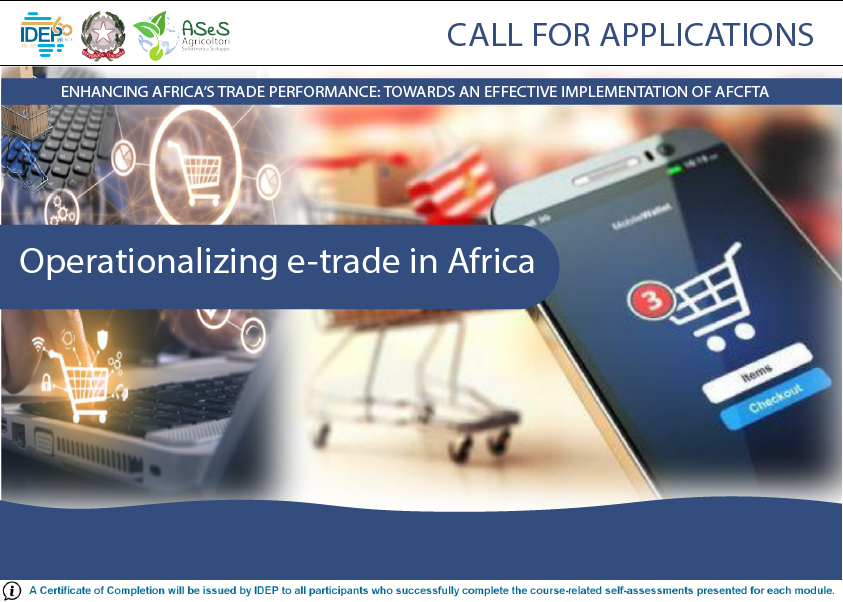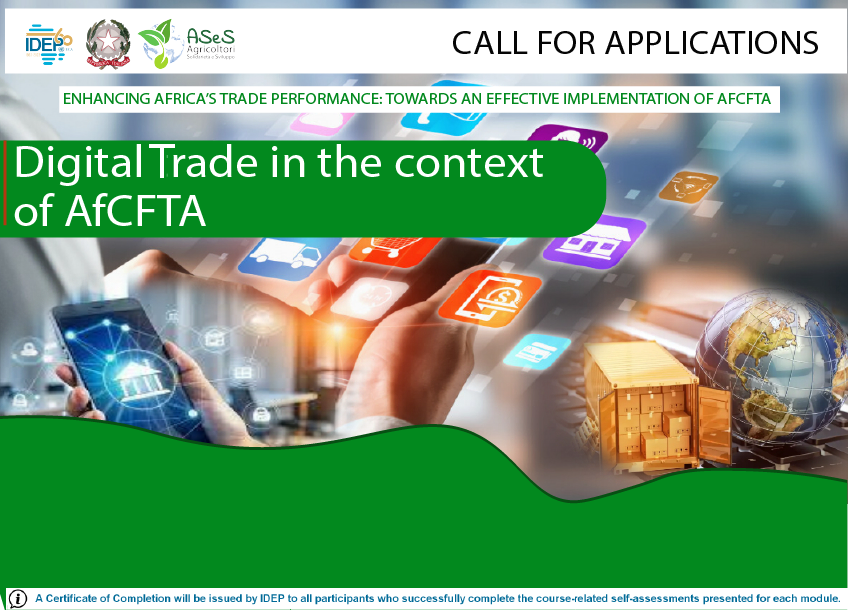WOMEN CLIMATE CHANGE REPORTERS TRAINING
Announcement in Brief
N.B.: IDEP strongly encourages and supports the participation of suitably qualifed female offcials in its capacity development and training programme. |
Programme Rationale
ACPC, in collaboration with its partners, has been at the forefront of efforts to promote climate change knowledge and awareness across the Africa continent. In 2016 for example, the ACPC convened a training of trainers (ToT) event on “Mainstreaming Climate Information and Services (CIS) into legislation, development policies and plans”, which was attended by legislators and youth groups drawn from across the continent. In tandem with this activity, the Centre, under its then DFID-funded Weather and Climate Information Services for Africa (WISER) programme commissioned a collaboration with the UNCC: Learn Partnership to co-develop a self-paced online learning module on “Climate information and services”. The learning was used to undertake climate information services training of civil society in Kenya, parliamentarians in Pretoria, Uganda and Sierra Leone, media in Cameroun and agriculture experts in Senegal. The online module has been completed by over 6,000 learners globally.
Objectives
The overall objective of the training is to deliver virtual training to “strengthen the capacity of women climate change reporters” in the African region.
At the end of the course, participants will be able to:
- (a) Demonstrate understanding of the science of climate change and its global and regional impacts.
- (b) Understand the nuances of global climate governance and negotiation frameworks and accurately report on them.
- (c) Identify and explore the human dimensions of climate change, including gender perspectives.
- (d)Engage in cross-border collaboration and peer learning among female journalists reporting on climate change.
- (e) Plan and execute climate change investigative journalism assignments.
- (f) Understand stakeholder mapping to the most effective dissemination channels (print, radio, TV and online).
- (g) Use contemporary tools and techniques for accurate, clear, and impactful reporting on climate change.





